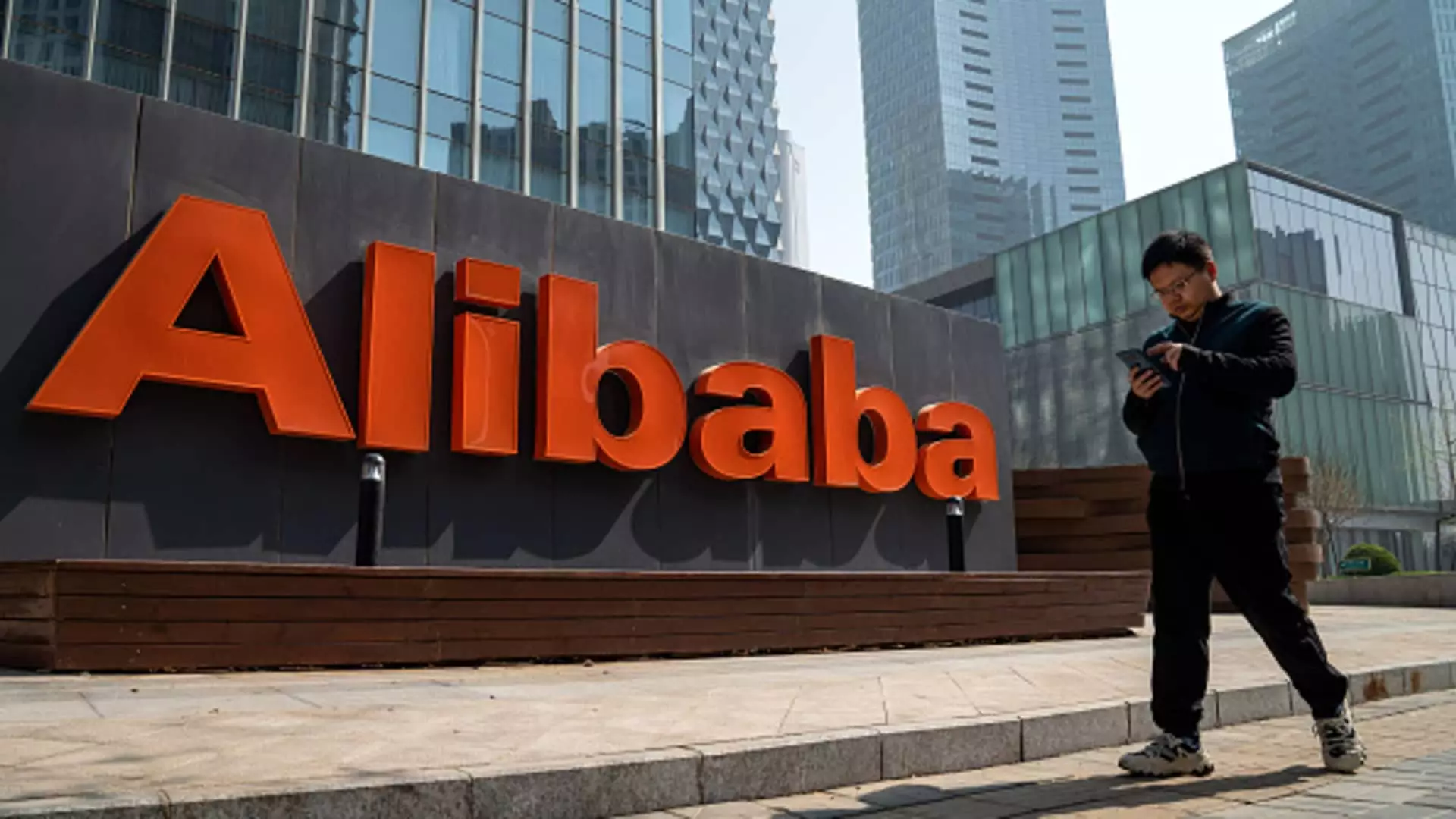Alibaba, the powerhouse of Chinese e-commerce, reported mixed results for its fiscal quarter ending September 30, showcasing a robust profit figure while falling short in sales revenue. The net income surged by an impressive 58% year-on-year to reach 43.9 billion Chinese yuan, equivalent to approximately $6.07 billion. This growth predominantly stemmed from favorable shifts in the company’s investment portfolio, alongside an increase in operational income and reduced investment impairments. Notably, this figure exceeded the anticipated forecast from LSEG, which estimated a net income of only 25.83 billion yuan.
However, this positive narrative was countered by a disappointing revenue outcome. Alibaba recorded 236.5 billion yuan in revenue—marking a modest 5% year-on-year rise but still lagging behind analyst expectations that pegged revenue at 238.9 billion yuan. This duality in performance indicates a company that, while benefiting from strategic investments, struggles to thrive amid broader economic slack.
Following the earnings announcement, Alibaba’s stock saw a notable uptick in premarket trading, climbing by about 3% as investors digested the news. Year-to-date, the shares have risen approximately 17%, reflecting a broader market optimism despite the company’s mixed financial results. The consistent gains suggest that investors might be banking on potential recoveries and long-term growth rather than immediate returns.
Alibaba’s core retail platforms, Taobao and Tmall Group, reported minimal growth, with a 1% increase in revenue to 98.99 billion yuan during the September quarter. The performance of these segments is particularly scrutinized not only by direct investors but also by market analysts seeking insights into consumer spending patterns within the sluggish Chinese economy.
China’s retail sector is currently in a precarious position, grappling with weakened consumer confidence and decreased spending. This challenge looms large over Alibaba and its peers, like JD.com, which also reported disappointing revenue figures recently. The concern here is particularly acute given China’s slowing economic growth, which has compelled the government to unveil a substantial stimulus package aiming to invigorate various sectors, including retail.
October’s retail sales data exhibited a positive shift with a surprising 4.8% rise year-on-year, hinting that perhaps the stimulus measures may begin to yield positive results. Additionally, the Singles’ Day shopping festival, a traditionally significant retail event, showed signs of improved consumer engagement, further supporting the notion that the economy could be stabilizing.
Alibaba remains closely tied to the trajectory of the Chinese economy and evolving regulatory landscapes. Recent comments from analysts at ING underline the importance of Alibaba’s quarterly earnings report for understanding China’s economic momentum.
On the international front, Alibaba’s overseas divisions, including Lazada and AliExpress, enjoyed a commendable 29% increase in sales to 31.67 billion yuan. This international diversification may provide a buffer against domestic downturns, leveraging opportunities in expanding markets.
In a bid to accelerate future growth, Alibaba’s Cloud Intelligence Group registered a 7% year-on-year sales increase, reaching 27.65 billion yuan. This sector shows a slight uptick from previous quarters and indicates Alibaba’s commitment to establishing itself as a key player in the cloud and AI industries. Notably, the Cloud division is moving into highly competitive waters, contending with domestic entities like Baidu and Huawei, as well as international giants like Microsoft and OpenAI.
Alibaba’s continuous investments in AI, such as its recently unveiled AI-powered search tool targeted at small businesses and the launch of its ChatGPT-style product, Tongyi Qianwen, mark significant strategic advancements that could redefine its growth prospects.
Alibaba’s recent financial disclosures paint a complex picture characterized by substantial profit growth countered by underwhelming sales figures in a challenging economic climate. The company finds itself in a critical phase, not just battling domestic economic challenges but also striving to strengthen its global presence. As stimulus measures take effect, their impact on retail growth could play a vital role in shaping Alibaba’s trajectory, thus warranting close attention from market observers and investors alike. The company’s moves in AI and cloud services underline its determination to evolve and adapt, essential elements for navigating the ongoing challenges in both domestic and international markets. Overall, Alibaba’s future seems to hinge on how well it can leverage its investments and navigate a changing regulatory and economic landscape.

Leave a Reply